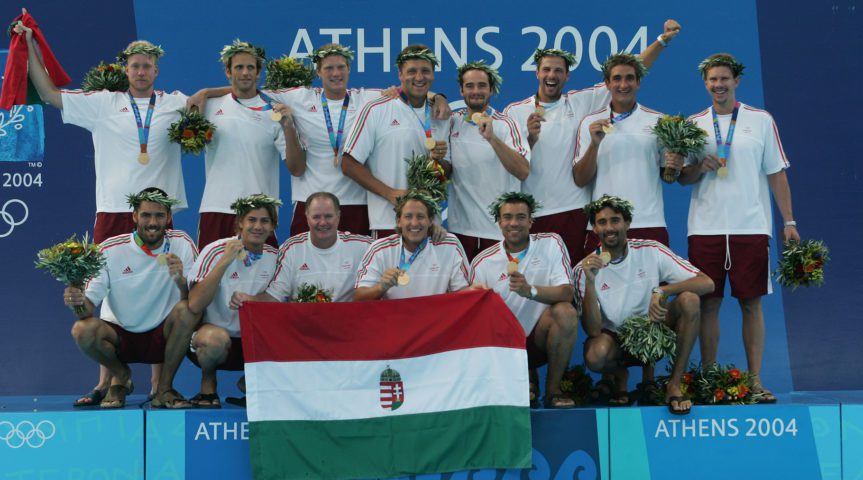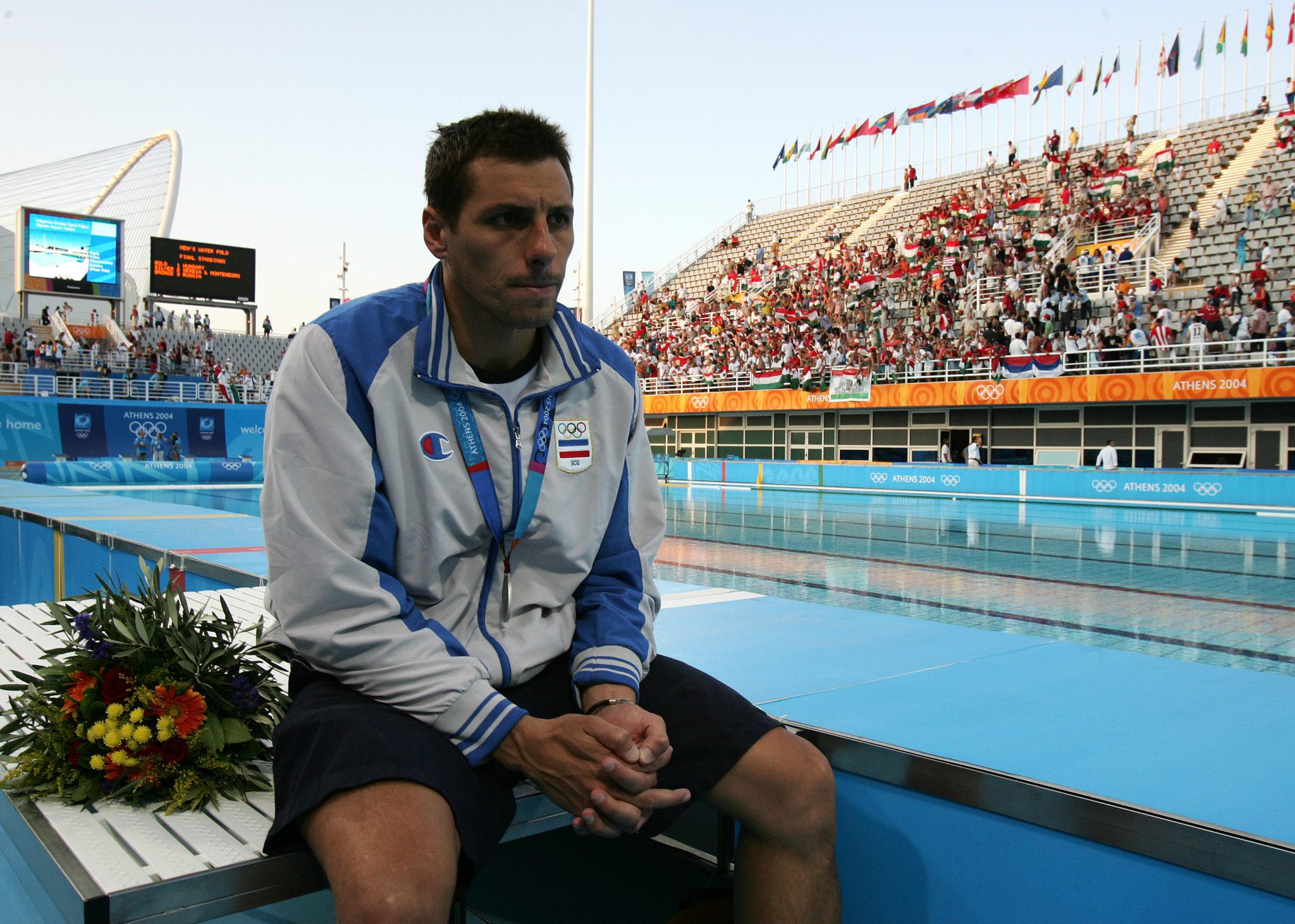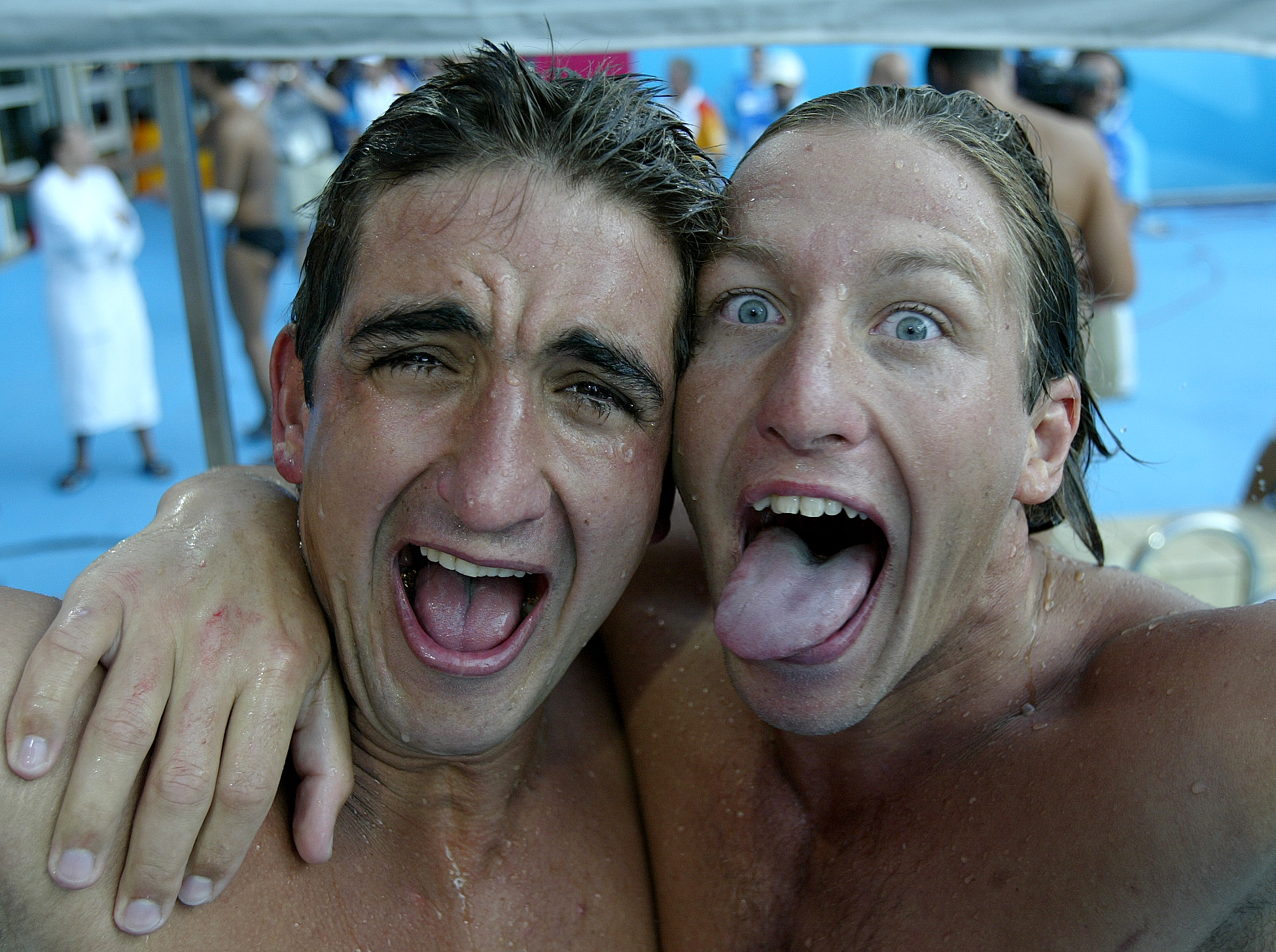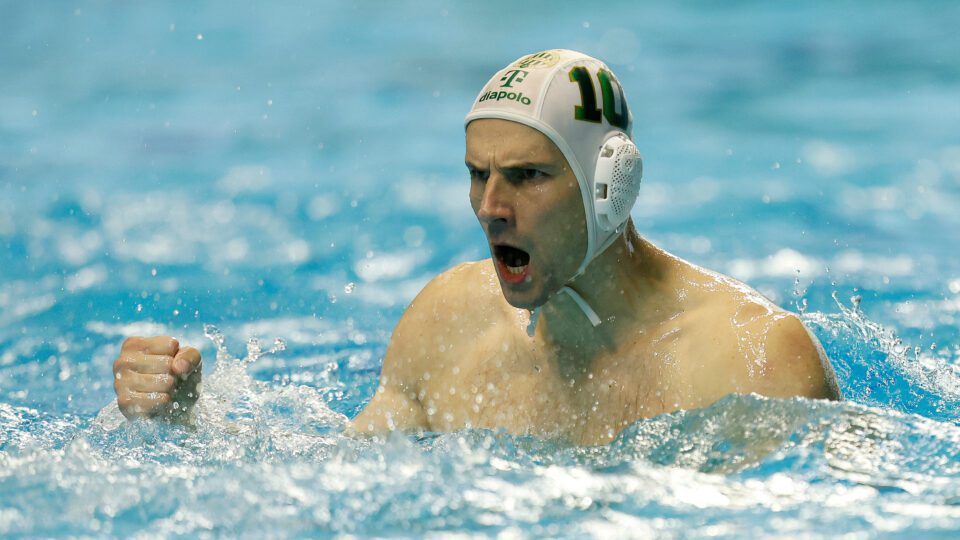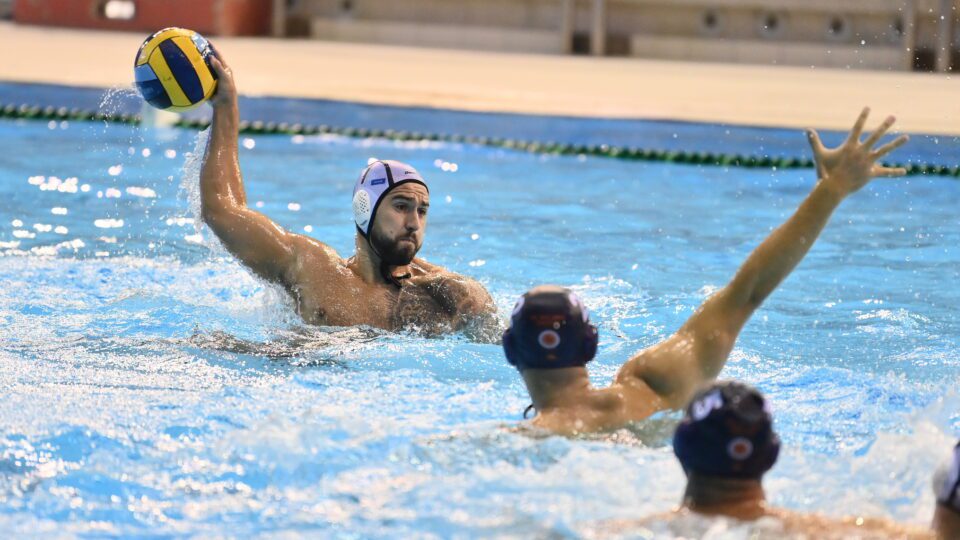There have been many big games in all team sports with the epithet “Epic”. As for men’s water polo, the “most epic” Olympic final in the 21st century (and maybe of all time) has been the gold-medal clash at the 2004 Games in Athens.
Hungary won its second consecutive Olympic title, defeating Serbia and Montenegro 8:7. The Hungarians trailed for most of the match. They chased the rival, took the lead for the first time 137 seconds before the end, and managed to save the 8:7 advantage in a thrilling finish.
This is the story of that game, one of the most important wins of the golden Hungarian generation.
The Athens final will be one of parts of the documentary movie about the most successful years of the Hungarian men’s water polo team (1997 – 2008) that will have its premiere in Hungary this weekend.
Champions vs. champions
Both teams were composed of great players and, therefore, were burdened by big expectations and the roles of the favorites.
Hungary arrived as the reigning Olympic and world champion. It’s always more difficult to defend the title than to win it for the first time.
Serbia and Montenegro, one of the most successful countries in water polo history, hadn’t won Olympic gold after 1988. Many believed the great generation that was the European champion at that moment could end the drought and claim the gold medal in Athens.
Road to the final
Hungary and Serbia and Montenegro started their journeys toward the final from the same line. They met already in the first round of the group stage. It was a game with twists and turns (and something similar repeated in the final). Serbia and Montenegro (SCG) led 1:0 after the first quarter. The Hungarians responded with three goals for 3:1, but Serbia and Montenegro leveled at 3:3 by the middle break. SCG entered the final period with a 4:3 advantage. But, Hungary scored three unanswered goals in the fourth quarter and won the points with a 6:4 victory.
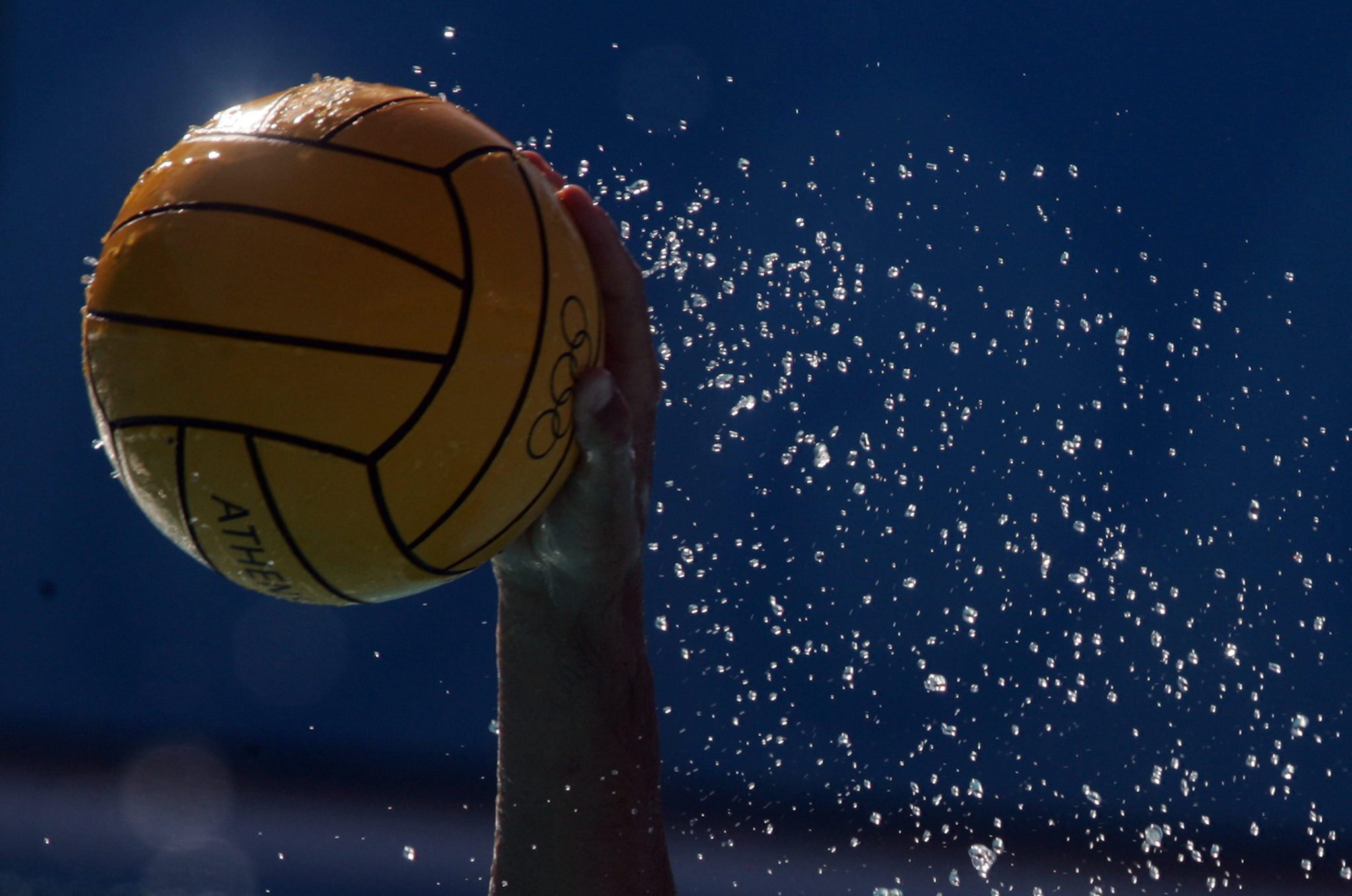
Photo by Laszlo Balogh
In the remaining four rounds in the group, Hungary beat Croatia (10:8), the USA (7:5), Kazakhstan (14:4) and Russia (7:6). Serbia and Montenegro struggled with Russia in the second game but won the match thanks to excellent defense and goalkeeper Denis Sefik (3:2). After that, it beat Kazakhstan (9:5), Croatia (11:8) and the USA (9:4).
Hungary finished 1st and advanced to the semifinals. Serbia in 2nd and Russia in 3rd place qualified for the quarterfinals. Team USA took 4th place. One of the favorites, Croatia, which had a lot of troubles with injuries, beat only the last-placed Kazakhstan.
SCG’s rival in the quarterfinals was Spain. Serbia and Montenegro had ups and downs, but it beat the Spaniards by two goals (7:5). In the semifinals, SCG silenced the fans in the packed stands in the pool in Athens by beating Greece 7:3. Hungary faced Russia in the semis. The final score was similar to the result of the encounter between these two teams in the group stage. Hungary recorded a two-goal victory (7:5).
Serbia and Montenegro’s promising start
The finalists were welcomed by 11.000 spectators in the stands of the Olympic Aquatic Centre in sunny and hot Athens. Both teams had support from their fans. The atmosphere was great.
Serbia and Montenegro (SCG) got off to a flying start, scoring three action goals in the first three possessions (Ciric, Sapic, Jelenic). After two and a half minutes of play, SCG earned a promising 3:0 lead.
At the finish of the quarter (the duration of the period was 7 minutes at that time), Hungary started coming back. The power engine of that comeback was Gergely Kiss. In the 6th minute, he converted a man-up. In the last second of the first quarter, a penalty shot was awarded to Hungary. Kiss was the one who took responsibility and made it 2:3. Hungary earned a 6 on 5 in its first possession in the second quarter, Kiss scored with an extra, and the teams were at the beginning again – 3:3. In the following minutes, the teams exchanged the goals. Danilo Ikodinovic scored from a distance. Tibor Benedek replied from a counterattack. Then Gojkovic gave SCG a 5:4 lead, but Tamas Varga closed the first half with a goal from 2m for 5:5.

Tibor Benedek Photo by Laszlo Balogh
Since the Serbs dictated the pace after the middle break, many believed that the Olympic crown would change the owner. The third quarter began similarly to the first period. The team of Serbia and Montenegro scored two early goals. It won the swim-off. Vanja Udovicic escaped and outwitted the Hungarians’ defense in Serbia’s first possession. Aleksandar Sapic doubled SCG’s advantage to 7:5 shortly after. It was Serbia and Montenegro’s last goal, although 13 minutes remained in the match. Still, SCG controlled the game and kept a 2-goal lead for a while, despite the fact that it missed a few opportunities to increase the advantage.
Hungary’s five golden minutes
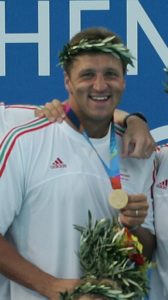
Gergelyi Kiss Photo by L.Balogh
However, Hungary produced a magnificent comeback in the last five minutes. Tamas Kasas pulled the trigger and scored for 6:7. The same player leveled at 7:7 from a penalty shot in the 25th minute. Two and a half minutes before the end, Hungary earned a man-up. An excellent attack with several precise passes was finished by Gergely Kiss, who handled excellently and found the net. Hungary went in front for the first time – 8:7
After that goal, the clock started ticking too slowly for the Hungarians and too fast for Serbia and Montenegro.
Fake whistle
SCG had the last attack. Fifteen seconds before the end, it earned a man-up. The ball went to Sapic, he was in an excellent position. While he was preparing to shoot in the dying seconds, a loud whistle was heard. Sapic stopped and looked at the referee, whose gesture said: “No, we didn’t whistle; keep playing.” Someone in the stands, who had the same whistle as the referees, confused the players. Seconds passed, which suited Hungary. Sapic shot in the last second from a worse position. Goalkeeper Zoltan Szecsi, who was excellent in the crucial moments, blocked the shot. The ball went to the corner. But SCG couldn’t score from a corner throw, and the Hungarians’ celebration started.
Hungary – Serbia and Montenegro 8:7 (2:3, 3:2, 0:2, 3:0)
Hungary: Zoltan Szecsi, Tamas Varga 1, Norbert Madaras, Adam Steinmetz, Tamas Kasas 2, Attila Vari, Gergely Kiss 4, Tibor Benedek 1, Rajmund Fodor, Barnabas Steinmetz, Tamas Molnar, Peter Biros, Istvan Gergely. Head coach: Denes Kemeny.
Serbia and Montenegro: Denis Sefik, Petar Trbojevic, Slobodan Nikic, Vanja Udovicic 1, Dejan Savic, Danilo Ikodinovic 1, Viktor Jelenic 1, Vladimir Gojkovic 1, Aleksandar Ciric 1, Aleksandar Sapic 2, Vladimir Vujasinovic, Predrag Jokic, Nikola Kuljaca. Head coach: Nenad Manojlovic.
Extra player attacks: Serbia and Montenegro 3/11, Hungary 5/11. Penalty shots (4m-shots): Hungary 2/2
After the game, the Hungarians wanted to celebrate forever. On the other side, the players of Serbia and Montenegro wished to leave the pool as soon as possible. There were no smiles on their faces when they received the silver medals. They knew they had missed an excellent opportunity to end their nation’s drought and a long period without the Olympic gold medal.
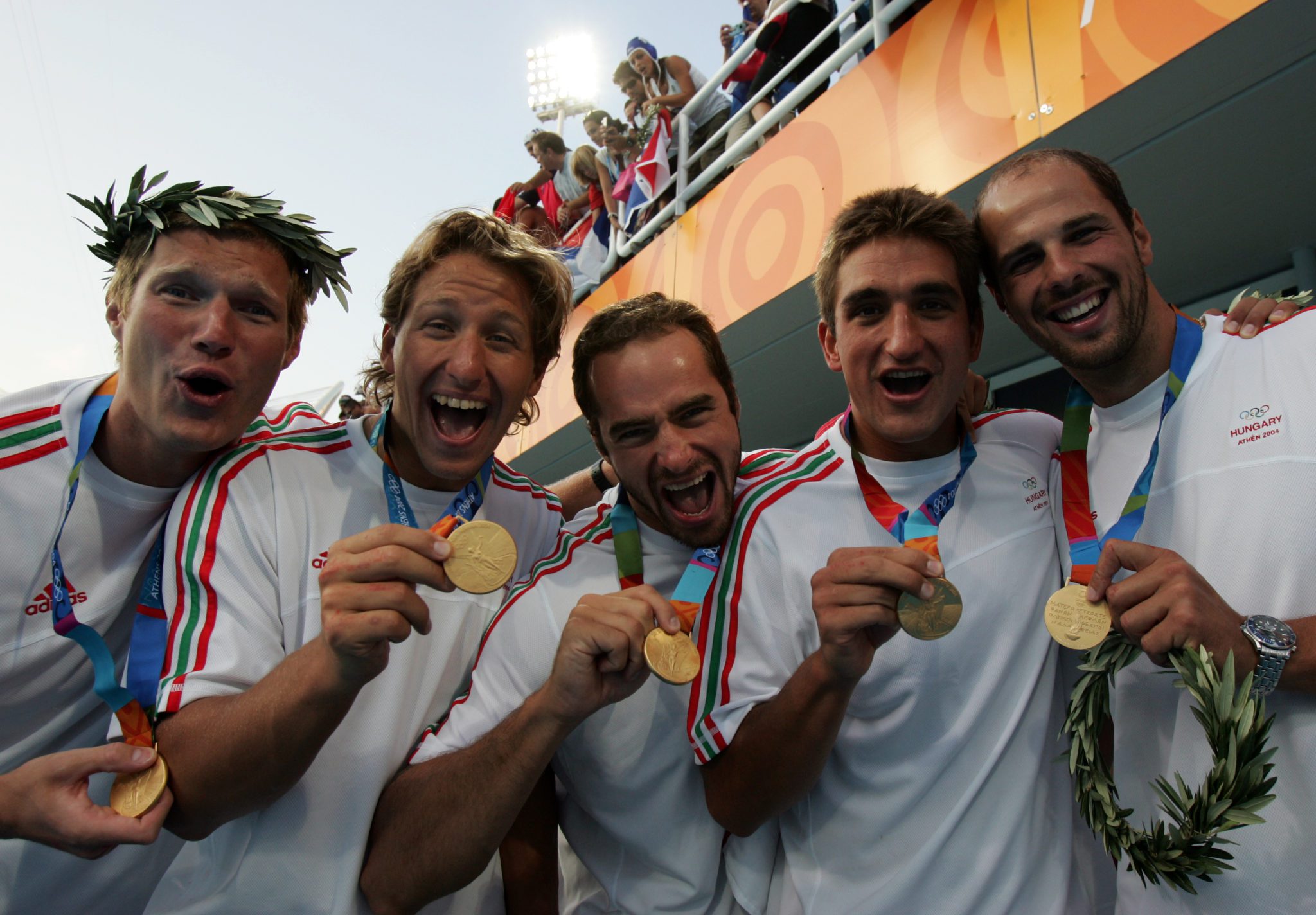
Photos by Laszlo Balogh
Celebration, shock, ecstasy
The Hungarians made a miracle. Immediately after the final, at the press conference, Tamas Kasas said:
“I don’t know how we won this game.”
The silver medalists were in shock for a long. A day after the final, captain Vladimir Vujasinovic commented that his team had had the game in its hands:
“We worked hard for Olympic gold, and we all believed we could win it. It’s hard for us because of missing this opportunity.”
Vladimir Vujasinovic after the medal ceremony
Many years after the final, Gergely Kiss, the game’s hero, published a book and, among other things, testified of the Athens Olympic Games. Writing about a magnificent comeback, Kiss underlined that head coach Denes Kemeny hadn’t panicked after the third quarter:
“He just said: Let’s play calmly, we have time. I think we can score three goals. We just have to pay attention to one thing so that we don’t concede more goals”. If this had happened, that would probably have ended the final and our dreams. From then on, that was all we had in our minds. And Denes was right. When I managed to score our eighth goal, I was in a state of ecstasy.”
Tamas Molnar and Rajmund Fodor
A few years ago, Slobodan Nikic, the youngest on the Serbia and Montenegro team in Athens, evoked his memories of the 2004 Olympic Games in an interview with Total Waterpolo:
“The defeat in the final was very hard for all of my teammates. I felt the same. I have spoken with many Hungarians about that final, especially in the last few years since I have been living in Hungary. They are all proud of that gold and consider that title as one of the biggest achievements of the great Hungarian team. They admit that Serbia and Montenegro had more outstanding and better individuals, but Hungary played better as a team in the final.”
What happened after?
The next Olympic Games were held in Beijing. In the meantime, Serbia and Montenegro became independent states. According to the results and standings in the group stage, it was predicted that Hungary and Serbia would face off in the 2008 Olympic final. But, Serbia surprisingly lost to the USA in the semifinals. Hungary qualified for the final match, where it relatively easily beat the Americans (14:10) and won the third consecutive gold. Serbia beat Montenegro 6:4 in a thrilling bronze-medal match.
Six Hungarian players achieved a rare feat and won three Olympic golds: Tibor Benedek, Tamas Kasas, Peter Biros, Tamas Molnar, Gergely Kiss and Zoltan Szecsi.

Denes Kemeny was the head coach of all three teams that won the gold medals in 2000, 2004, and 2008. Photo by Laszlo Balogh
Benedek and Molnar retired from the national team after Beijing. The other four and head coach Denes Kemeny tried to win the fourth Olympic gold in a row, but Hungary finished 5th in London in 2012.
Only one of the players of the SCG team in Athens managed to claim the gold Olympic medal. Slobodan Nikic, the only water polo player with three gold medals at the World Championships, crowned his career with the Olympic title in Rio de Janeiro in 2016.
What are they now?
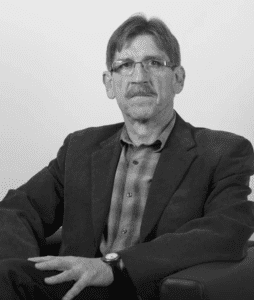
Photo: fzs.edu.rs
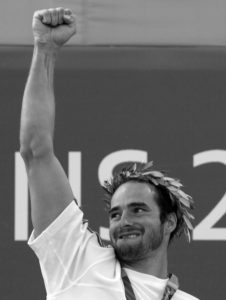 Two of the main protagonists of the 2004 Olympic final aren’t alive.
Two of the main protagonists of the 2004 Olympic final aren’t alive.
Serbia and Montenegro’s head coach Nenad Manojlovic died suddenly from a heart attack in 2014. Hungary’s captain
Tibor Benedek passed away three years ago after a severe illness.
Many of the participants in the exciting Athens final are still involved in water polo.
In 2022, Tamas Molnar was appointed the World Aquatics’ Technical Water Polo Committee chairman. His rival in Athens Vanja Udovicic, the former Minister of Youth and Sport of Serbia, has been a World Aquatics Bureau member since last year.
Two former and two current presidents of the national water polo federations participated in the Olympic final in 2004.
Denes Kemeny was the president of the Hungarian Water Polo Federation until 2018 when he left the position and was replaced by one of the players of the Athens team, Atilla Vari. Last year, Vari resigned. His successor is Norbert Madaras, who worked as the president of the Water Polo Club Ferencvaros for the past several years.
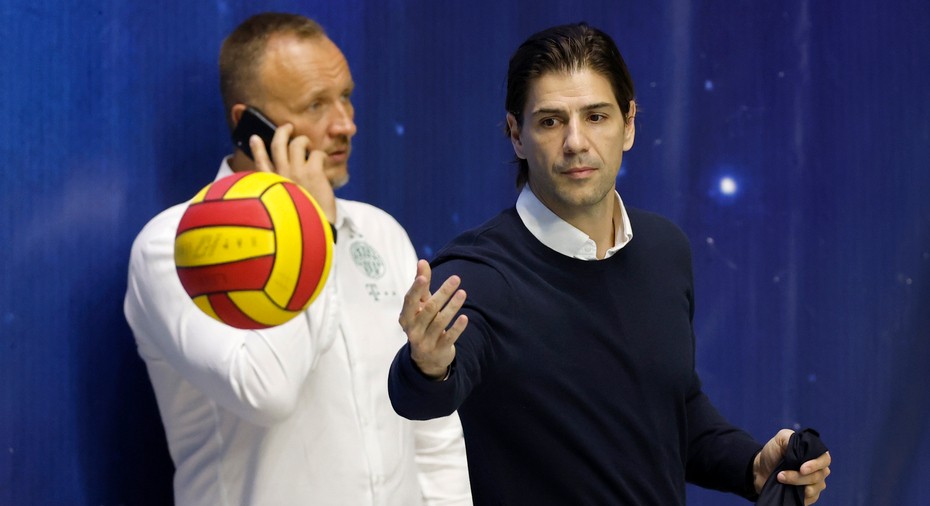
Norbert Madaras Photo by Laszlo Balogh/Total Waterpolo
Serbia And Montenegro’s center-forward Viktor Jelenic has been serving as the president of the Water Polo Federation of Serbia since 2018.
Many of the finalists of the 2004 Olympics are coaches now.
Dejan Savic has become one of the most successful coaches guiding Serbia between 2012 and 2022. Two Olympic golds are the most valuable trophies in his coaching career. He led Crvena Zvezda to the title in the 2013 Champions League. Recently, he became a member of the General Board of the Women’s Water Polo Club Crvena Zvezda.
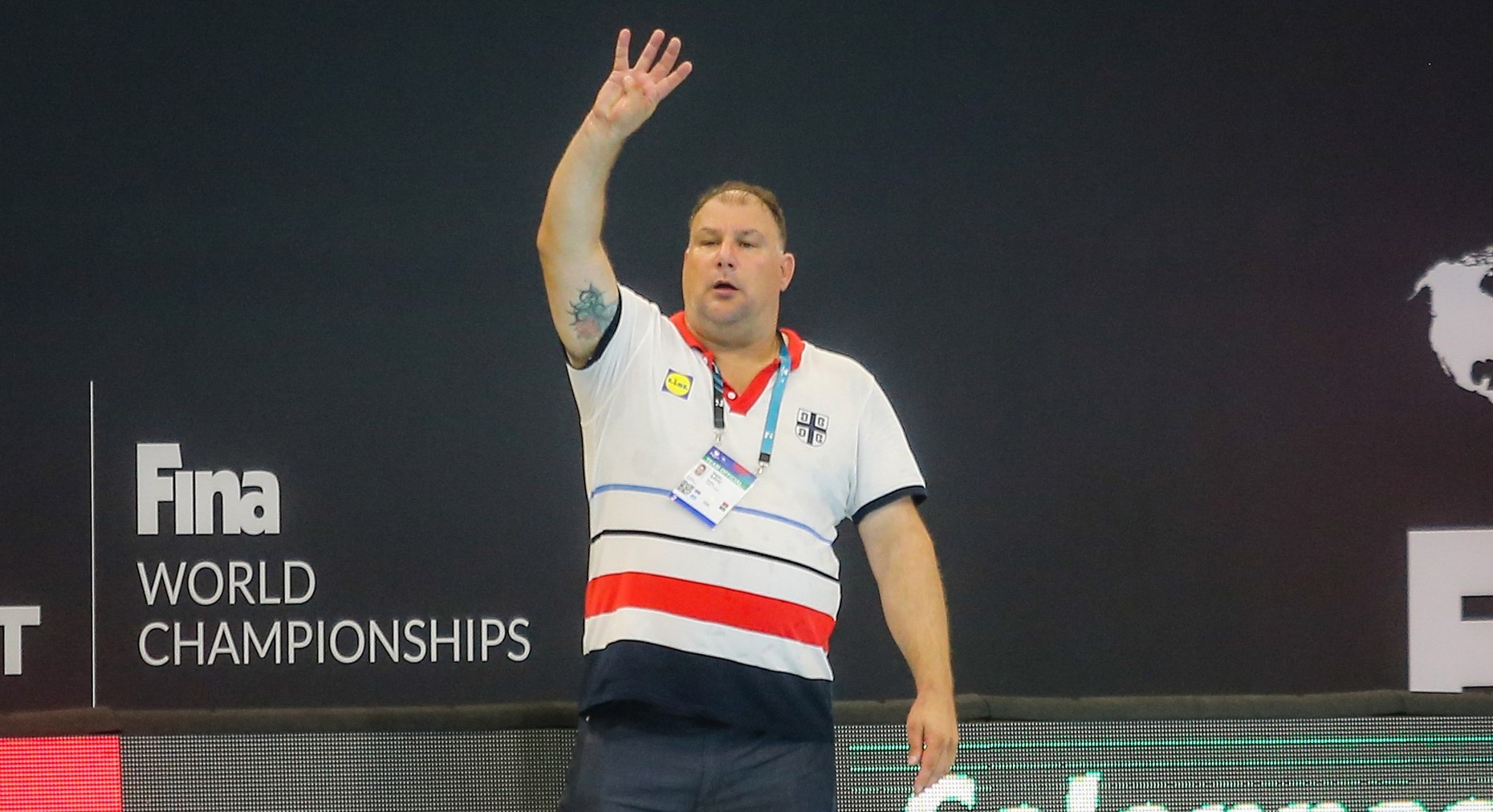
Dejan Savic Photo by Slobodan Sandic/Water Polo Federation of Serbia
Vladimir Gojkovic has been Montenegro’s head coach for more than seven years.
Two silver medalists work and live in Athens now. Vladimir Vujasinovic coaches Vouliagmeni (earlier, he coached Partizan, Pro Recco and Novi Beograd), and Aleksandar Ciric is the head coach of Olympiacos’ female team with which he has achieved significant success in the last year.
Since 2021, Slobodan Nikic has been on Vasas’ bench as the head coach. His rival in the Hungarian championship is Peter Biros, Eger’s head coach and sporting director. Zoltan Szecsi is Eger’s president.
Predrag Jokic is Waspo Hannover’s assistant coach.
Tamas Varga has coached Debrecen and Hungary’s women’s junior and youth national teams. Now, he coaches Szeged’s female team.
Istvan Gergely was the coach of the goalkeepers of the Hungarian national team. Since 2017 he has been the executive chairman of the Honved Sports Association. Recently, he became the vice president of the Hungarian Water Polo Federation.
Barnabas Steinmetz is the head of the water polo sector in Honved.
Nikola Kuljaca, SCG’s second goalkeeper, is the Water Polo Club Partizan director.
Gergely Kiss, the hero of the final who was voted the MVP of the Athens Olympic tournament, is the head of the water polo sector in the Sports Academy for young athletes in a big sports center in the Budapest suburb of Godollo.
Aleksandar Sapic, the best scorer of the Athens tournament (18 goals), founded VK Novi Beograd in 2015. Today, he is major of Belgrade.
Petar Porobic, who was SCG’s assistant coach in Athens, is one of the most respected coaches in the world at the moment. He is the president of the Board of the World Water Polo Coaches Association and coaches the national team of China.



